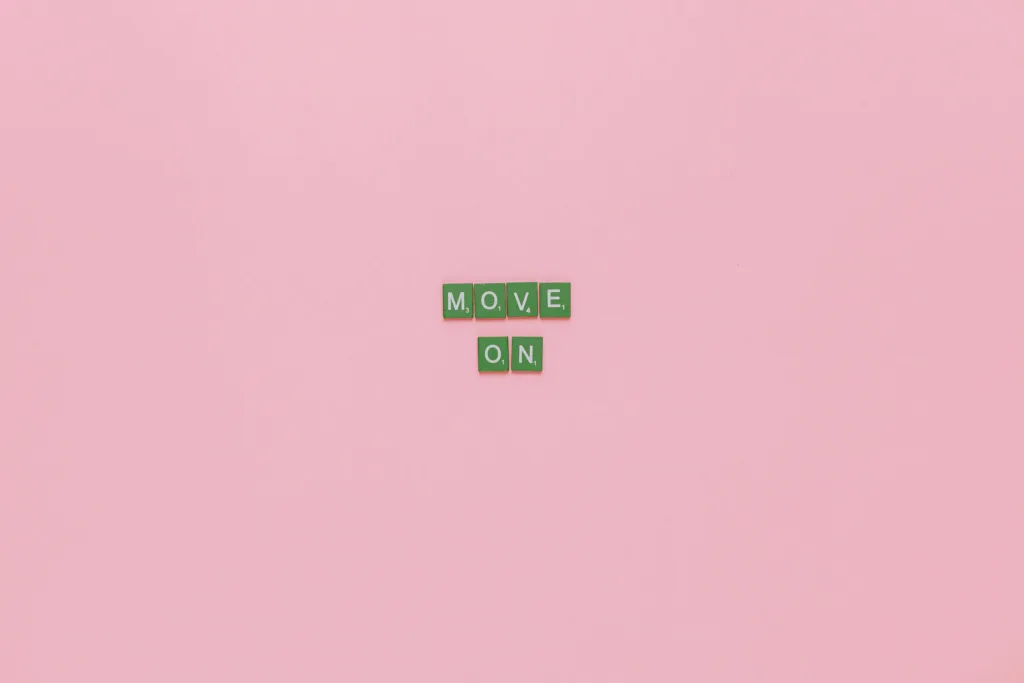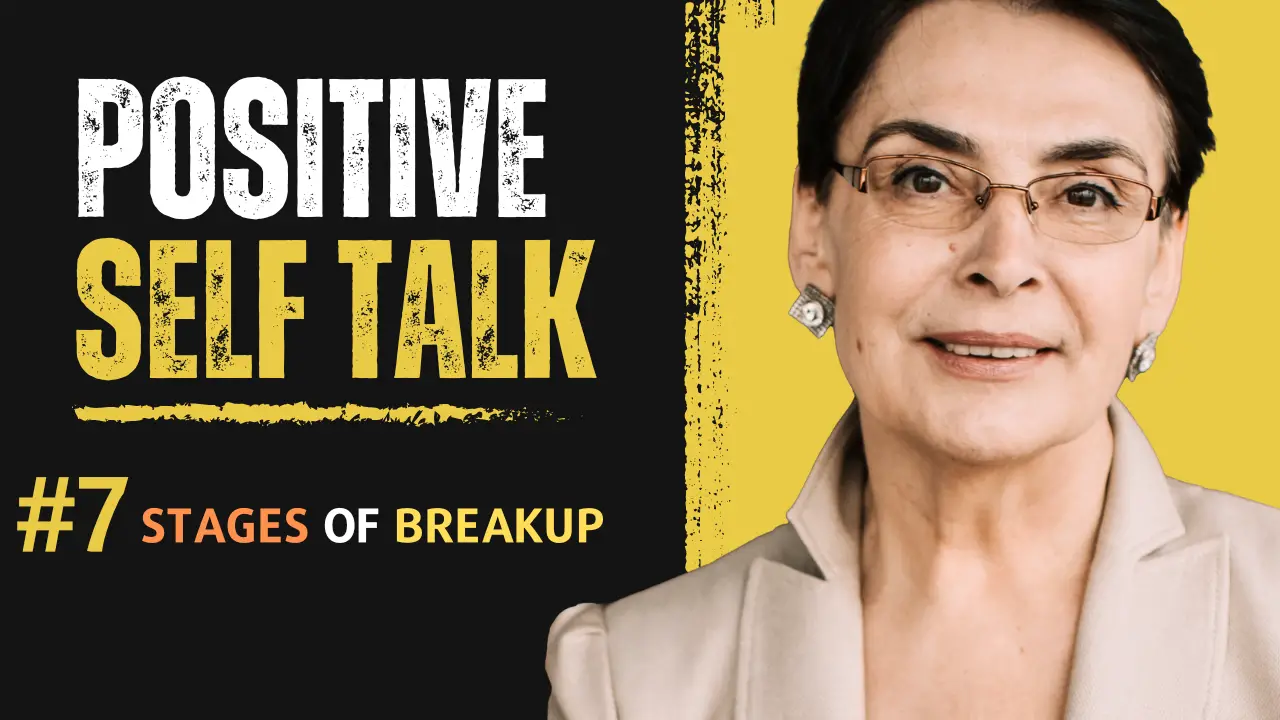Breakup Journey: Unmasking the 7 Stages for a better life
Table of Contents
Breakups can feel like a wild ride of emotions, with ups and downs all over the place. This guide explains the different stages you might go through, from shock and anger to sadness and acceptance. It’s like a roadmap to help you understand what’s happening and how to move on, even though it might feel tough right now.
Introduction
The world can feel like it’s flipped upside down after a breakup. One minute everything seems perfect, the next you’re facing a future you imagined together falling apart.
It can feel just as bad as losing someone close to you, says relationship expert Claudia de Llano. That’s because breakups involve losing a really important relationship.

Getting over a breakup can be a wild ride of emotions. You might feel angry, sad, confused, lonely, worried, guilty, or full of regret, all mixed together. There might even be moments of relief, hope, and even feeling okay about it all. It can happen all at once, or you might go through these feelings one by one, or even jump back and forth between them. it’s like your emotions are on a crazy ride, with ups and downs all over the place.
Clarissa Silva, a relationship coach, says it’s normal to feel angry, resentful, and sad at the same time. But remember, even though it feels tough right now, there is light at the end of the tunnel. But remember, even though things feel tough now, you’ll get past this and be stronger for it.
Breakup Blues: A Rollercoaster of Emotions
Breaking up is tough, and it’s natural to feel a mix of emotions along the way. Here’s what you might experience:
- Second Guessing: You might question if the breakup was the right decision.
- Shock and Denial: It can feel unreal at first, like it’s not actually happening.
- Anger and Resentment: You might feel mad at your ex for hurting you.
- Trying to Make it Work: You might wish things could go back to the way they were.
- Feeling Down: Breakups can make you feel sad and lonely.
- Acceptance: Eventually, you’ll realize the relationship is over.
- Moving On: You’ll heal and be open to finding happiness again, even if your ex is happy too.
1-The Nagging Doubt: Second Guessing After a Breakup

Breakups are messy affairs, leaving behind a tangle of emotions. One of the most common and frustrating feelings you might encounter is second-guessing yourself. You made a difficult decision, but now doubts creep in, whispering questions that can keep you up at night.
This second-guessing is completely normal. You invested time, energy, and maybe even a part of yourself into this relationship. Breaking up means letting go of that investment, and it’s natural to wonder if you made the right call. Here’s why those doubts might be swirling:
- Focusing on the Good Times: Our brains love to hold onto positive memories. After a breakup, you might find yourself reminiscing about all the good times you shared. Laughing together, inside jokes, shared dreams – these happy memories can make you question if you threw away something special.
- Fear of Missing Out: There’s also a fear of missing out on “the one.” Especially if the relationship lasted a long time, you might worry that you’ll never find someone who clicks as well. This fear can lead you to romanticize the past, ignoring the reasons why the relationship ended.
- Feeling Lost: Breakups can leave you feeling adrift. You might be used to spending a lot of time with your ex, sharing plans and goals. The sudden absence of that partnership can be disorienting, and the uncertainty of the future can fuel your doubts.
So, how do you handle this second-guessing?
- Write it Down: Grab a pen and paper and list out the reasons why you decided to break up. Were there constant arguments? Unmet needs? Having a concrete reminder of the issues can help you stay grounded when doubts arise.
- Talk it Out: Find a trusted friend or family member who can offer a listening ear. Sometimes just verbalizing your doubts can help you process them and gain a clearer perspective.
- Focus on Yourself: Breakups are a chance to rediscover yourself. Invest in hobbies you neglected, try new things, and spend time with loved ones. The more you focus on your own well-being, the less your ex will occupy your thoughts.
- Give it Time: Healing doesn’t happen overnight. Be patient with yourself and allow the emotional rollercoaster to run its course. With time, the intensity of the emotions will fade, and you’ll gain a clearer perspective.
Remember, second-guessing doesn’t necessarily mean you made the wrong decision. It’s a natural part of the grieving process. By acknowledging your doubts, focusing on self-care, and seeking support, you can navigate this stage and ultimately find yourself moving on with confidence.
2-The Numbness After the Blow: Shock and Denial After a Breakup

Breakups can be like an emotional earthquake. One minute you’re walking along a sunny path, hand-in-hand with your partner, and the next, the ground trembles beneath you. The world you knew shifts, and a wave of disbelief washes over you. This is where shock and denial come in – a natural defense mechanism your brain uses to shield itself from the immediate pain of the situation.
Imagine this: You’re walking down the street, completely focused on your phone, when suddenly a car screeches to a halt right in front of you. Your first reaction might not be fear or anger, but a strange sense of detachment. Maybe you think, “This isn’t really happening, is it?” It’s your brain’s way of giving you a moment to process the potential danger before it throws you into a full-blown panic attack.
Breakups trigger a similar reaction. The news, especially if unexpected, can be so overwhelming that your brain goes into a state of disbelief. It’s like putting up a mental shield to protect yourself from the initial emotional blow. You might experience:
- Numbness: You feel emotionally detached, almost like you’re watching the situation unfold from a distance. Tears might not come, or you might feel strangely calm despite the upheaval in your life.
- Dissociation: The world around you feels surreal. You might go through your daily routine on autopilot, but everything seems a little hazy and unreal.
- Bargaining: You might find yourself mentally bargaining with a higher power or even your ex, offering anything to rewind time and prevent the breakup.
- Minimizing: You downplay the seriousness of the situation, convincing yourself it’s just a temporary fight or misunderstanding.
Why does this happen?
There are a few reasons why our brains resort to shock and denial:
- Protection: As mentioned earlier, it’s a way to shield ourselves from the intense pain of the breakup. Facing the reality of the situation head-on can be too overwhelming, so our brains take a step back to process it gradually.
- Hope: Denial allows us to cling to a sliver of hope that things might change. Maybe your ex will come back, or maybe you misunderstood each other. This hope, however faint, can provide some comfort in the immediate aftermath.
- Time to Adjust: Shock and denial give you time to mentally and emotionally adjust to the new reality. It creates a buffer zone before you’re forced to confront the full weight of the situation.
Is denial a bad thing?
While denial is a natural coping mechanism, it shouldn’t become a permanent state. Eventually, it’s important to move through the grieving process and acknowledge the reality of the breakup. Here are some tips to navigate this stage:
- Be Patient: Allow yourself time to process the situation. Denial is a temporary phase, and it will eventually fade.
- Talk it Out: Sharing your feelings with a trusted friend or therapist can help you break through the denial and begin to heal.
- Gently Challenge Yourself: Start by acknowledging small truths. Maybe it wasn’t a perfect relationship, or maybe there were issues you ignored.
- Focus on Self-Care: Taking care of yourself physically and emotionally will give you the strength to deal with the emotional rollercoaster ahead.
Remember, healing is a journey, not a destination. Be patient with yourself and allow yourself to feel whatever emotions come up. Although challenging, moving through shock and denial is a crucial step towards acceptance and ultimately, finding your way forward.
3-The Flames of Anger: Why Breakups Can Make You See Red
Breakups can be a recipe for emotional chaos, and anger is a common ingredient that tends to bubble up after the initial shock wears off. You might feel mad at your ex – maybe furious, frustrated, or even downright enraged. This anger is completely understandable. Here’s why breakups can trigger such strong emotions:
The Sting of Betrayal:
Imagine planning a big trip with your best friend, only to find out they booked tickets for someone else. That feeling of betrayal can be similar to what you might experience in a breakup. You invested time, energy, and maybe even your heart into this relationship. Now, the future you envisioned together feels shattered, and that can leave you feeling hurt and angry.
Loss of Control:
Breakups can feel like losing control over your life. Maybe the decision was mutual, but maybe it felt sudden or unexpected. This lack of control can be frustrating, and anger can be a way of regaining some sense of power in a situation that feels powerless.
Unmet Needs:
Relationships are all about give and take. If your needs weren’t met in the relationship – whether it was emotional support, quality time, or clear communication – the frustration can boil over into anger after the breakup. You might feel resentful that your ex didn’t meet your expectations, leaving you feeling unheard and undervalued.
It’s Okay to Be Angry
It’s important to acknowledge that anger is a normal response to a breakup. Suppressing it won’t make it disappear – it might just fester and cause problems later. Here are some healthy ways to deal with your anger:
Acknowledge It: Don’t bottle it up! Talk to a trusted friend or therapist, write in a journal, or even punch a pillow (safely!). Recognizing your anger is the first step towards dealing with it effectively.
Express Yourself (Constructively): If you need to communicate your anger to your ex, consider writing them a letter you never send. This can be a cathartic way to express your feelings without causing further conflict in the healing process.
Channel Your Energy: Instead of letting anger consume you, find healthy outlets for it. Feeling overwhelmed ? Your body craves movement !Exercise can help pent-up emotions and leave you feeling energized. Creative hobbies like painting, writing, or playing music can also help you channel your anger into something positive.
Remember, Anger Won’t Last Forever
While anger can be a powerful emotion, it’s important not to let it define you. Give yourself time to process your feelings, and gradually, the anger will start to subside. Here are some additional tips to help you move on from anger:
- Focus on the Present: Instead of dwelling on the past, focus on the here and now. What are you grateful for today? What small steps can you take towards feeling better?
- Practice Self-Compassion: Be gentle with yourself. Breakups are tough, and it’s okay to feel angry. This is a tough time, and it’s okay to be upset.
- Focus on Yourself: Invest in activities that make you happy and build your self-esteem. Spend time with loved ones who support you. The more you nurture yourself, the easier it will be to let go of the anger.
Remember, anger is a normal part of the healing process after a breakup. By acknowledging your feelings, expressing yourself healthily, and focusing on self-care, you can move through this stage and emerge feeling stronger and more hopeful about the future.
4-Holding Onto Hope: Wishing for What Used to Be
Breakups can leave a gaping hole in your life, and it’s natural to want to fill it back up with the familiar comfort of your past relationship. This might lead you to a phase of “bargaining” or “trying to make it work.” Here’s what this stage might look like and how to navigate it:
Wishing on a Broken Star:
Imagine your favorite mug shattering on the floor. You might spend some time picking up the pieces, hoping to somehow glue them back together and restore it to its original state. This is similar to the feeling you might have after a breakup. The relationship you knew and loved is broken, and a part of you might desperately wish things could go back to the way they were.
Why Do We Bargain?
There are several reasons why people might try to salvage a relationship after a breakup:
- Fear of the Unknown: The future after a breakup can feel scary and uncertain. Holding onto the familiar past, even if it wasn’t perfect, can be a way of feeling safe and secure.
- Hope for Change: Maybe you believe that if you change something about yourself or the relationship, your ex will take you back. This hope, however faint, can offer some comfort in the immediate aftermath.
- Unfinished Business: If there were unresolved issues in the relationship, you might feel a need to address them before letting go. This can be a healthy way to gain closure, but it’s important not to confuse it with trying to rekindle the romance.
Breaking Free from the Bargaining Trap:
While it’s understandable to want things to go back to normal, it’s important to acknowledge reality and eventually move forward. Here are some tips:
- Accept the End: Remind yourself that the relationship is over. This doesn’t mean you have to be happy about it, but acknowledging reality is the first step towards healing.
- Focus on the Future: Think about what you want from a relationship in the long run. Did the old relationship truly fulfill your needs? What are you looking for in a future partner?
- Practice Self-Compassion: It’s natural to feel sad and lost after a breakup. Be gentle with yourself and allow yourself time to grieve the end of the relationship.
Moving Beyond the Wishful Thinking:
While it’s okay to reminisce about happy memories, don’t get stuck in a fantasy version of the past. This is your chance to rewrite your story .What kind of amazing future do you wants to create ?
- Reconnect with Loved Ones: Spend time with friends and family who support you and make you feel good.
- Explore New Interests: Take a class, join a club, or try a new hobby. This will help take your mind off your ex and allow you to discover new passions.
- Focus on Personal Growth: Use this time to learn from the past relationship and become a stronger, more confident version of yourself.
Remember, breakups are a chance to grow and evolve. By letting go of the past and embracing new possibilities, you can open yourself up to a happier and more fulfilling future.
5-The Emotional Rollercoaster: Sadness and Loneliness After a Breakup

Breakups can be like a sudden downpour, leaving you drenched in sadness and feeling isolated. These emotions are completely normal, and understanding why they happen can help you navigate this difficult time.
The Well of Sadness:
Imagine a well representing your emotional state. During a happy relationship, that well is likely overflowing with joy, contentment, and love. When the relationship ends, it feels like someone ripped the plug out, and all those positive emotions drain away. This can leave you feeling empty, sad, and maybe even a little lost.
Why Do We Feel Sad?
Several factors contribute to the sadness you might experience after a breakup:
- Loss: A break up signifies the loss of a significant part of your life, the person you shared experiences and dreams with. Grieving this loss is a natural part of the healing process.
- Loneliness: You might suddenly feel a deep sense of loneliness without your ex’s companionship. Simple things you used to do together, like watching movies or having dinner, can feel hollow without them.
- Self-Doubt: Breakups can trigger insecurities and make you question your self-worth. You might wonder if you’re good enough or if you’ll ever find love again.
Battling the Blues:
While sadness feels overwhelming right now, remember that it’s a temporary state. Here are some tips to help you cope with the sadness and loneliness:
- Allow Yourself to Feel: Don’t try to suppress your sadness. Don’t hold it in! Talking about your feelings can help you heal faster Let yourself cry, feel the pain, and acknowledge your emotions.
- Seek Support: Surround yourself with loved ones who can offer comfort and understanding. Don’t bottle it up! Talking to loved ones, a therapist, or even a support group can be a huge weight off your shoulders
- Practice Self-Care: Focus on activities that nurture your physical and emotional well-being. Get enough sleep, eat healthy foods, and do things you enjoy. This will help you feel stronger and more resilient.
- Embrace Memories (Selectively): While reminiscing too much can keep you stuck in the past, allowing yourself to remember some of the happy memories can be a form of closure. Focus on the positive experiences and lessons learned, not just the pain of the ending.
Remember, You’re Not Alone:
Loneliness after a breakup is common, but it doesn’t have to define you. Here are some ways to reconnect and combat feelings of isolation:
- Reach Out to Friends and Family: Strengthen your connections with loved ones who can provide support and companionship. Plan activities together, whether it’s grabbing coffee, going for a walk, or simply watching a movie at home.
- Explore New Relationships: (This doesn’t have to mean romantic relationships!) Join a club, take a class, or volunteer in your community. Looking to make friends who share your love for [insert specific interest]? Consider joining a club or taking a class – it’s a fun way to connect and maybe even learn something new
- Reconnect with Old Friends: Have there been people you haven’t spoken to in a while? Reach out and rekindle old friendships.
- Remember, Your Support System Doesn’t Have to Be Big: Even a small circle of close friends or family members can make a world of difference during this difficult time.
By allowing yourself to feel the sadness, seeking support, and engaging in activities that bring joy back into your life, you can gradually navigate through this emotional rollercoaster. Remember, it will take time, but you will eventually emerge stronger and more confident on the other side.
6-Letting Go and Moving Forward: The Power of Acceptance
Breakups can feel like a storm that throws your world upside down. You might be caught up in anger, sadness, or a desperate desire to go back to the way things were. However, there comes a time when the storm starts to clear, and acceptance sets in.
Acceptance Doesn’t Mean Happiness
It’s important to understand that acceptance isn’t the same as happiness. It doesn’t mean you suddenly forget your ex or pretend the relationship never happened. Instead, acceptance signifies that you’ve come to terms with reality – the relationship is over. You might still feel some sadness or lingering emotions, but you understand that moving forward is the healthiest option.
Signs You’re Reaching Acceptance:
Here are some signs that you might be moving towards acceptance:
- Reduced Emotional Intensity: The intense anger, sadness, or frustration you felt earlier start to fade, replaced by a more neutral emotional state.
- Focus on Yourself: You’re more interested in taking care of yourself and rebuilding your life, rather than fixating on your ex or the past relationship.
- Wishing Your Ex Well: You can genuinely wish your ex well, even if you don’t want them back in your life. There’s no resentment or bitterness, just a sense of closure.
Finding Your Way to Acceptance:
The journey to acceptance takes time, and everyone heals at their own pace. Here are some tips that can help you move in that direction:
- Be Patient with Yourself: Don’t expect to feel “over it” overnight. Allow yourself to experience your emotions and grieve the loss of the relationship.
- Reflect on the Experience: Take some time to reflect on what you learned from the relationship, both the good and the bad. This can help you grow and make better choices in the future.
- Journaling: Writing down your thoughts and feelings can be a cathartic way to process your emotions and gain perspective on the situation.
- Focus on the Present: Instead of dwelling on the past, focus on the here and now. What are you grateful for today? What small steps can you take towards feeling better?
Acceptance Opens New Doors:
Moving towards acceptance doesn’t erase the past; it allows you to learn from it and embrace the future. Here are some benefits of accepting the end of the relationship:
- Emotional Freedom: Letting go of resentment and anger frees up emotional space for happiness and joy in other areas of your life.
- Personal Growth: The experience of a breakup can teach you valuable lessons about yourself and about relationships in general.
- Openness to New Possibilities: By accepting that this relationship is over, you open yourself up to the possibility of finding love and happiness again, maybe in a way you didn’t expect.
Remember, acceptance is a powerful tool for healing after a breakup. By allowing yourself to feel your emotions, reflecting on the experience, and focusing on the present, you can gradually move forward and build a brighter future for yourself.
7-Finding Your Happy Ending: Moving On and Opening Yourself to Joy

Breakups can feel like the end of the world, leaving you wondering if you’ll ever find happiness again. But the truth is, healing happens. You will heal, and even more importantly, you’ll open yourself up to experiencing joy once more – even if your ex seems happy too.
Happiness Isn’t a Competition
Seeing your ex appear happy might sting at first. It’s natural to wonder if they’ve moved on faster, or if you’ll ever feel that way again. But remember, happiness isn’t a competition. Their happiness doesn’t take away from your ability to find your own joy.
Healing Takes Time (and That’s Okay!)
Healing doesn’t happen overnight. It’s a journey with ups and downs. There will be moments when you miss your ex, and that’s perfectly alright. Allow yourself to feel those emotions, but don’t let them define you.
Focusing on Yourself is Key
This is your time to rediscover who you are and what makes you happy. Here are some ways to nurture yourself:
- Reconnect with passions: Did you have hobbies you neglected during the relationship? Rekindle that spark or explore something completely new!
- Spend time with loved ones: Surround yourself with positive, supportive people who make you laugh and uplift you.
- Practice self-care: Prioritize your physical and mental well-being. Eat healthy foods, get enough sleep, and explore relaxation techniques like meditation or yoga.
Opening the Door to New Possibilities
As you heal, you’ll start to feel more open to new experiences and connections. You might even discover qualities you want in a future partner that you didn’t recognize before. Here’s how:
- Meet new people: Step outside your comfort zone. Looking to meet new people and give back to the community? Volunteer your time, join a club, or take a class – there are tons of ways to get involved and make a difference. You never know who you might meet with shared interests!
- Focus on what makes you happy in a relationship: Reflect on what didn’t work in the past relationship and create a vision for what you truly desire.
- Date with an open mind: Don’t compare potential partners to your ex. Look for someone who complements you and brings joy to your life.
Remember, You Deserve Happiness
The ending of a relationship, no matter how painful, doesn’t define your potential for happiness. You are worthy of love, joy, and a fulfilling future.
Positive Reminders for a Brighter Future: Let these affirmations be your reminder that happiness is waiting for you.
- “My strength allows me to heal and embrace the future..”
- “I take charge of my happiness and create joy in my life”.
- “I am open to new possibilities and positive experiences.”
- “I deserve love and happiness in my life.”
By prioritizing your well-being, embracing new experiences, and holding onto hope, you’ll discover that happiness isn’t just possible, it’s waiting to be found. You might even be surprised by the incredible person you become during this process.
Conclusion
Breakups can be a roller coaster of emotions, like feeling sad, angry, and lonely. But know this: even though it hurts now, things will get better. It might take some time, but you’ll heal and become stronger from this experience. In the meantime, be kind to yourself. Take care of your body and mind, and remember you’re not alone. You’ve got this!
Share this content:






Post Comment